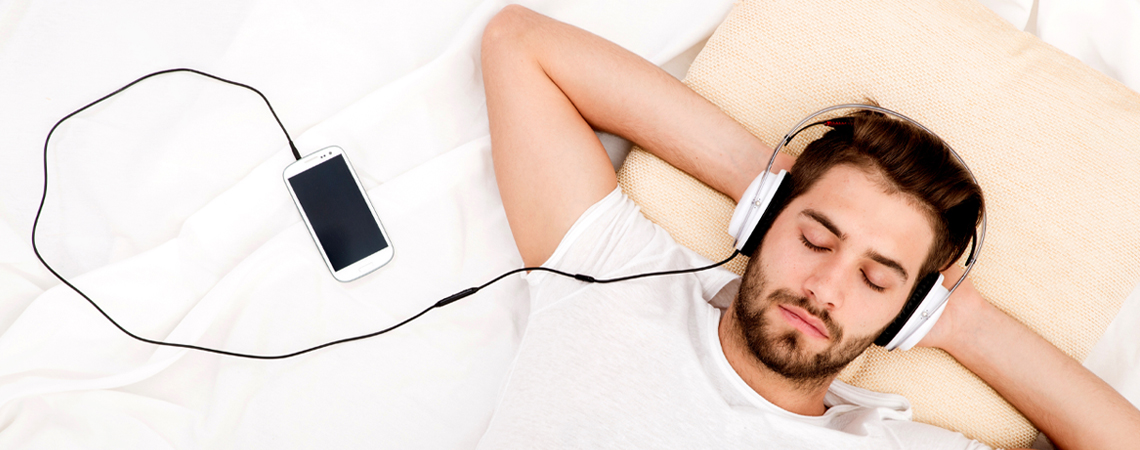


Imagine when it’s nighttime, and you finally get to touch down at your snuggly bed after a long, hectic day. Trying to close your eyes for some relax time, you suddenly hear the clock ticking out loud with deadly silence in between. A minute goes by, and your bustling mind starts replaying the scenes from that day; the people you talked to, the tasks you haven't managed to finish, the trouble your children got into, and so on. With things going on inside and outside, it’s too frustrating to get some shut-eye. What to do now?
Obviously, you need some soothing distraction to help you achieve some quality sleep. Thankfully, relaxing classical music offers you a remedy. The graceful tunes compose a blissful stress reliever and mood booster. There’s a wonderful connection between classical music and relaxation, leading you to some peaceful relax time. In fact, multiple research showed more perks of listening to classical music. Let’s dig deeper into it.
Stimulating Intellectual Power and Cognitive Function
Many believe that listening to classical music makes you smarter. Is it true? Here is the fact. A study conducted by Frances Rauscher, Gordon Shaw, and Catherine Ky (1993) reported that after listening to Mozart's Sonata for Two Pianos in D Major, research participants showed a temporary (lasts for about 15 minutes) boost of spatial reasoning, which skills are a fundamental part of art, physical education, math, and science. People named this phenomenon the “Mozart Effect”.
What’s more, as stated in a study by Kevin Labar, a psychology and neuroscience professor, music has the power to enhance intellectual performance and cognitive function. It's actually the calming effect incited by classical music that releases dopamine to amplify pleasure, compress the stress hormone, and improve mood. It lets you enjoy performing tasks and studying, which then feel much easier and more enjoyable. How does the “Mozart Effect” work on you? Give it a try.
Enhancing Memory
If you find it challenging to remember something from ten minutes ago, then it’s time to try listening to classical music. A study of The Effect of Music Genre on a Memory Task in 2012 analyzed how different kinds of music affect short-term memory. It turned out that the group listening to classical music was the fastest to successfully match all the pairs of cards as was asked in the test. In addition, based on a research article entitled The Effect of Listening to Music on The Human Transcriptome, a 20-minute listening session of classical music could modify the genes responsible for brain function and memory. The researchers reported an increase in dopamine secretion, synaptic function, and the genes associated with learning and memory from the participants who listened to classical music. So, what was it again?
Improving Relaxation and Relieving Stress
There are times when you feel stressed out for no specific reason. Until one day, a tiny twinge might trigger you to explode. Whether you realize the cause of the stress or not, relaxing classical music will help you relieve stress and provide you with some relax time. As stated in the study of The Effect of Different Types of Music on Patients' Preoperative Anxiety, classical music is the most effective to reduce the anxiety of patients. Classical music is proven to help lower heart rate, blood pressure, and cortisol level, slow breathing, and decrease emotional distress. To put it in a nutshell, relaxing classical music assists you to calm down, unwind, and improve relaxation.
Generating Quality Sleep
Finally, this answers the question of what to do when you struggle to fall asleep. No more sleeping pills. Listen to relaxing classical music before bedtime to let your brain get a comforting switch off. A study on how Music Improves Sleep Quality In Students concluded, "Relaxing classical music is an effective intervention in reducing sleeping problems. Nurses could use this safe, cheap, and easy-to-learn method to treat insomnia."
However, not every classical music is suited for your relax time, as high beats-per-minute music has been proven to increase heart rate and blood pressure. In contrast, slower beats and harmonic tunes of certain classical symphonies ease up our heart rate, resulting in lower blood pressure and slower breathing. As mentioned by the Sleep Foundation website, music with a rhythm of 60-80 BPM is selected by most studies to help you achieve quality sleep.
It might be confusing to pick which classical music you should savor to bring you some quality sleep. Lean back, King Koil®️ has got your back. You can now access King Koil®️ playlist on Spotify and listen to relaxing classical music cherry-picked especially for your relax time. Enjoy the relaxing tunes in King Koil®️ playlist while laying on your favorite dreamy bed from King Koil®️. Now, the whole night of quality sleep is yours. Sleep better, wake up fresher.
King Koil Mattress Collection Page on top menu of the page as example King Koil’s Reflex Bed here (link : https://www.kingkoil.id/reflex)
Download Our brochure here (link : https://kingkoil.id/Brochure2022)
Click Whatsapp Icon at the bottom right of this page to talk with our Customer Service / click here (link :https://api.whatsapp.com/send/?phone=62818899009&text=Hallo+King+Koil%2C+I+need+information+about...&type=phone_number&app_absent=0)